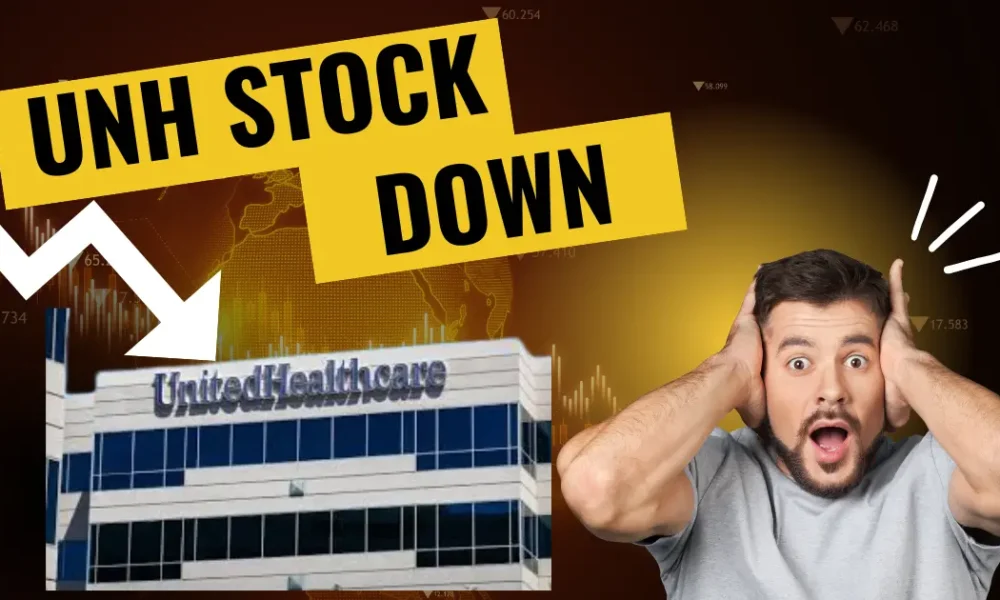United Healthcare stock news has been making headlines as United Health stock (NYSE: UNH) experienced a dramatic drop of over 22% on April 17, 2025, marking its worst single-day performance since 1998. Investors are scrambling to understand why UNH stock is down and what this means for United Healthcare stocks moving forward. Here’s a breakdown of the latest United Healthcare news and the factors behind the sharp decline.
Why Did United Healthcare Stock Drop?
The primary reason UNH stock plummeted was the company’s unexpected announcement of weaker-than-expected first-quarter earnings and a significant cut to its 2025 profit forecast. UnitedHealth Group, the parent company of UnitedHealthcare, reported adjusted earnings of $7.20 per share on revenue of $109.6 billion, falling short of Wall Street’s expectations of $7.29 per share and $111.6 billion. This marked the first time in over a decade that the company missed profit forecasts, sending United Health stock into a tailspin.
CEO Andrew Witty described the results as “unusual and unacceptable,” citing higher-than-anticipated medical costs in its Medicare Advantage plans and unexpected changes in its Optum Health business. The company now expects full-year adjusted earnings to range between $26.00 and $26.50 per share, down from its previous forecast of $29.50 to $30.00, well below analysts’ consensus of $29.74. This drastic revision fueled the sell-off, erasing approximately $120 billion in market value in a single day.
Handpicked reads for you: Crypto vs Stocks: Similarities, Differences & Everything Else
Key Factors Behind the UNH Stock Decline
Several factors contributed to why United Healthcare stock dropped so significantly:
- Surge in Medicare Advantage Costs: UnitedHealth reported that care utilization in its Medicare Advantage plans increased at double the expected rate. This surge in demand for outpatient and physician services led to a higher medical care ratio of 84.8%, up from 84.3% the previous year, indicating a larger portion of premiums was spent on claims.
- Optum Health Challenges: The Optum division, which provides healthcare services, faced unanticipated changes in patient profiles, particularly among new Medicare patients inherited from exiting plans. These patients were sicker than expected, impacting planned 2025 reimbursements.
- Policy Changes: Recent Biden administration policies reduced reimbursement rates for Medicare Advantage plans to curb system abuses, forcing UnitedHealth and other insurers to cover a greater share of costs. This added financial pressure to the company’s bottom line.
- Industry-Wide Impact: As a bellwether for the health insurance sector, UnitedHealth’s results raised concerns about rising medical costs across the industry. Stocks of competitors like Humana (down 7.4%), Elevance Health (down 2.4%), and CVS Health also declined, though not as severely.
What’s Next for United Healthcare Stocks?
Despite the sharp decline, some analysts remain cautiously optimistic about UNH stocks. UnitedHealth’s core insurance arm, UnitedHealthcare, generated $84.6 billion in revenue, surpassing forecasts, and the company improved its operating profit margin to 8.3%. Additionally, the Centers for Medicare & Medicaid Services (CMS) announced increased reimbursement rates for Medicare plans, which could provide some relief in the future.
CEO Witty emphasized that the company is taking aggressive steps to address these challenges, particularly in the Optum and Medicare Advantage segments, with a goal to return to its long-term earnings growth target of 13-16%. However, investors remain wary, as the health insurance industry has been grappling with elevated costs since mid-2023 due to increased demand for government-backed plans.
The broader market impact was notable, with United Health stock single-handedly shaving approximately 800 points off the Dow Jones Industrial Average, highlighting its significant influence as the index’s top-weighted stock. The ripple effect underscores the importance of monitoring United Healthcare stock news for insights into the broader healthcare sector.
You Might Also Want To Read: Stock Market Performance Since Trump Took Office
Investor Takeaways
For investors wondering why is UNH stock down, the combination of missed earnings, a slashed profit outlook, and rising medical costs paints a challenging picture. However, UnitedHealth’s scale, diverse membership base, and integrated healthcare services through Optum provide a strong foundation for recovery. The company serves over 100 million people and employs more than 400,000, positioning it as a leader in the industry.
Those considering United Healthcare stocks should weigh the short-term volatility against the company’s long-term growth potential. Keeping an eye on upcoming earnings from competitors like Elevance Health (reporting April 22) and regulatory developments will be crucial for understanding the sector’s trajectory.
Stay updated with the latest United Healthcare news and UNH stock developments as the company navigates these challenges. For more insights into United Health stock and the healthcare industry, check trusted financial news sources or consult with a financial advisor.
